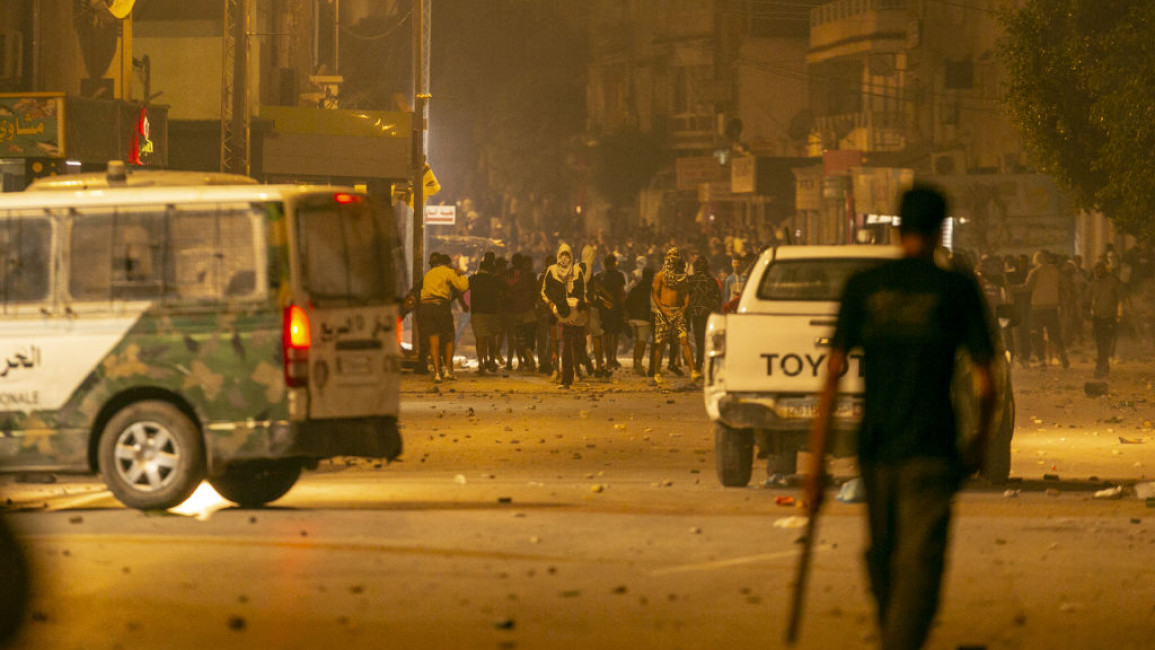Tunisians protest poverty and police brutality for the fourth day
Protests in Tunisia continue for the fourth day in a row as the country grapples with acute food and fuel shortages amid a growing authoritarian system under President Kais Saied's rule.
In Tunis, dozens of citizens took to the streets late on Monday to protest against the police's violence, which has allegedly led to the death of a young Tunisian named Malek Salimi. Malek Salimi, 24, died last week of his wounds after being chased by police last month.
Tunisia's interior ministry denied allegations of abuse and claimed that Salimi was stopped with his two friends as part of a routine procedure, but he fled and fell from a high wall.
In Tadamon, a poor neighbourhood in the capital, the protesters set rubber tires on fire and blocked roads while chanting anti-police slogans.
تواصل الاحتجاجات لليلة الرابعة على التوالي
— Tunisians Against The Coup (@TunisiaCoup) October 17, 2022
حي التضامن الليلة
Les protestations se poursuivent pour la 4ème nuit consécutive.
Ettadhamen ce soir.
Protests continue for the 4th consecutive night.
Ettadhamen neighborhood tonight.#TunisiaCoup#يسقط_الانقلاب_في_تونس#يسقط_قيس_سعيد pic.twitter.com/hqw8Kp0ZAt
The National Guard fired tear gas and sound bullets to disperse the crowd.
Reports said the police's brutality has fermented more anger and will likely encourage further protests.
Police brutality was at the heart of Tunisia's Jasmine uprising in 2011, in which tens of thousands of Tunisians took to the streets after Mohammed El-Bouazizi, a vendor of fruits, set himself alight in protest of police harassment and violence. The uprising toppled the 23-year dictatorship of Zine El Abidine Ben Ali.
More than a decade after, police repression against activists continues to expand in the birthland of the 2011 Arab uprisings.
Over 2,000 arrests were made between January and March 2021 on charges of anti-Saied online posts and 'insulting police'.
Since President Kais Saied's power grab last July, rights groups say that authorities have increasingly used measures reminiscent of those employed under the Ben Ali regime.
Over the weekend, two rival Tunisian opposition groups staged so far one of the biggest protests against president Saied, denouncing his moves to consolidate political power as public anger grows over fuel and food shortages.
For weeks, Tunisia's shops and supermarkets are experiencing severe shortages of goods, from dairy to bottled water.
Several supermarkets have restricted customers to buying only a specific amount of supplies to alleviate the worsening situation.
Meanwhile, experts say the state's gas supplies will not last for more than a week.
According to the World Bank, Tunisia's public debt as of 2020 was 70 per cent above GDP, and the current debt levels could be much higher.



